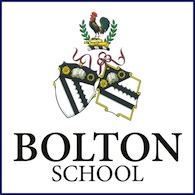 Education itself is a constantly changing landscape – first none at all for most, then to 12 with the basics of literacy and numeracy, then to first 15, later 16 with leaving exams and now to 17 with training or education beyond GCSE. After school a few went to University, some went to Polytechnic, often to study ‘vocational’ courses and others went to local colleges, very often to learn practical skills. Polytechnics became Universities then access to University was enormously increased. Then free Higher Education became unaffordable and tuition fee loans began. Now they are unaffordable for the Government so a recent report has suggested a worthwhile Higher Education course that will be funded with loans should be one that takes a graduate to a salary of £25,000 by the time they are 25.
Education itself is a constantly changing landscape – first none at all for most, then to 12 with the basics of literacy and numeracy, then to first 15, later 16 with leaving exams and now to 17 with training or education beyond GCSE. After school a few went to University, some went to Polytechnic, often to study ‘vocational’ courses and others went to local colleges, very often to learn practical skills. Polytechnics became Universities then access to University was enormously increased. Then free Higher Education became unaffordable and tuition fee loans began. Now they are unaffordable for the Government so a recent report has suggested a worthwhile Higher Education course that will be funded with loans should be one that takes a graduate to a salary of £25,000 by the time they are 25.
And so now we know – the purpose of Higher Education is to produce skills which are valued in the workplace and gain higher salaries.
But is it really? At one level the argument is reasonable. The taxpayer foots the bill for the student loans for tuition (as the repayments only cover some of the loan for most of the people) so the tax payer should see a return on that investment in the prosperity of the country. Yet if that is so, much has been lost. At one level many of the old Polytechnic and College courses will be lost as those jobs do not pay such high levels. They do though transfer invaluable skills and had worth. At another level any sense of learning for the sake of advancing society and knowledge, especially humanities and creative subjects we still find it curiously difficult to see as useful, will disappear. Indeed, learning for pleasure will become the preserve of those who can self fund. Others will need to study courses the country decides are useful to the country. Put like that, is that really what we want – a division between those funded by the state doing a list of ‘useful subjects’ and another group, self funded, probably international in flavour, exploring the edges of learning and advancing human knowledge.
That may be too stark a statement of what could be, but it is possible enough to be worth thinking about whether that is what we actually want to happen right now.

Leave a Reply